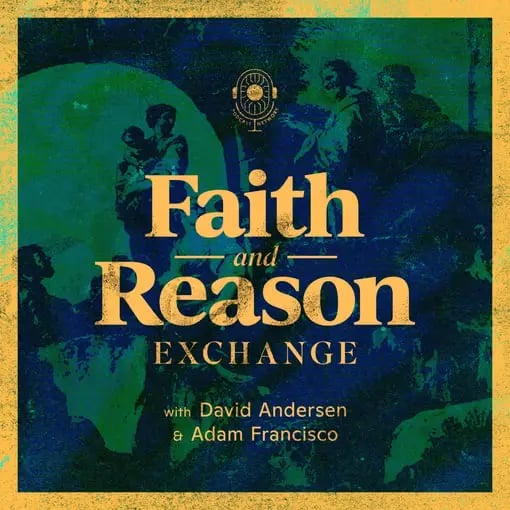David and Adam reflect on C.S. Lewis's "The Poison of Subjectivism."
Podcasts
Each 1517 Podcast is dedicated to delivering Christ-centered content through weekly, monthly, and seasonal audio platforms. Listen online or on your favorite podcasting app.
Author
- All Authors
- Aaron Zimmerman
- Adam Francisco
- Amy Mantravadi
- Blake Flattley
- Bob Hiller
- Bradley Gray
- Brian W. Thomas
- Bror Erickson
- Bruce Hillman
- Caleb Keith
- Chad Bird
- Chris Rosebrough
- Christopher Gillespie
- Cindy Koch
- Craig Donofrio
- Dan van Voorhis
- Daniel Deen
- Daniel Emery Price
- Darrin Sheek
- David Andersen
- David Rufner
- David Zahl
- Debi Winrich
- Delwyn Campbell
- Donavon Riley
- Doug Klembara
- Edward Killian
- Elyse Fitzpatrick
- Erick Sorensen
- Flame
- Grant Klembara
- Gretchen Ronnevik
- Haroldo Camacho
- Jacob Smith
- Jared C. Wilson
- Jeff Mallinson
- Jeffrey Pulse
- Jessica Thompson
- Jim Nestingen
- Joel Fitzpatrick
- Joel Hess
- John Andrew Schreiner
- John Bombaro
- John T. Pless
- John W. Hoyum
- John Warwick Montgomery
- Katie Koplin
- Kelsi Klembara
- Ken Sundet Jones
- Magnus Persson
- Matt Popovits
- Michael Berg
- Michael Horton
- Nick Lannon
- Paul Koch
- Peter Nafzger
- Philip Bartelt
- Raleigh Sadler
- RJ Grunewald
- Robert Kolb
- Rod Rosenbladt
- Ron Hodel
- Sam Leanza Ortiz
- Sarah Condon
- Sarah Crowder
- Scott Davis
- Scott Keith
- Steven Paulson
- Tanner Olson
- Troy Neujahr
- Uwe Siemon-Netto
- Wade Johnston
- William Cwirla
-
In episode TWO HUNDRED AND FIFTY-NINE, Jason and Wade discuss historical theology and why we are historical theologians.
-
This episode introduces the topic of our next few episodes, where David and Adam discuss woke culture and ideology.
-
David and Adam talk about the primary methods of Christian apologetics--focusing on evidentialism and presuppositionism.
-
David and Adam finish their conversation about the Regensburg lecture.
-
David and Adam continue their conversation about Islam, venturing beyond the issues raised about in the Regensburg lecture (see season 2, episode 1).
-
Nearly two decades ago, Pope Benedict XVI (formerly Cardinal Joseph Ratzinger) delivered what is often called the Regensburg lecture. Though it was meant to rekindle the relationship between faith and reason (or science and theology) in higher education, much of the world—or at least the Muslim majority world—got distracted by a brief reference he made to a fifteenth-century dialogue about Islam, its theological voluntarism, and the consequences of such a view of God.
-
David and Adam have spent the last two and half months exploring both the philosophical and scientific evidence for God's existence and the historical evidence for the resurrection and deity of Jesus.
-
The first Christians believed Jesus was Lord and God. This episode explores how this could be given the monotheism of Judaism.
-
The Parable of the Lawless, Polygamist Groom. In this episode, we discuss the parable of the ten virgins as preached by John Piper. We converse about law and promise, red herrings, who’s wise and foolish in the parable, the bondage of the will and the doctrine of election, and the consequences for hearers of such parabolic sermons.
-
Biochemist Dr. Michael Behe joins David and Adam in this special episode of the Faith and Reason Exchange where they talk about Dr. Behe's life's work demonstrating the failure of Darwin's theory of evolution and promoting the theory of intelligent design.
-
11/08/234 minsDavid and Adam continue their conversation about the historical reasons for believing in Jesus' resurrection from the dead.


